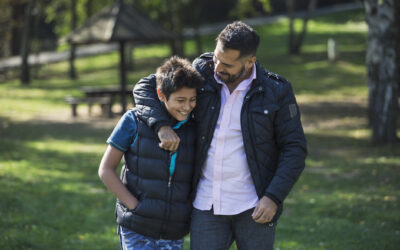And What You Can Do Differently This Year.
The holidays are often painted as a time of joy, togetherness, and celebration. Yet, for many couples this season can bring an increase in arguments, misunderstandings, and tension – not what we ideally would like to experience during this time of year
Let’s explore why conflicts tend to flare up and, more importantly, what you and your partner(s) can do to restore harmony.
Factors Contributing to Couples Arguments
- Increased Stress The holidays come with a long to-do list: shopping, cooking, hosting, traveling, and managing finances, not to mention, tight work schedules and workload trying to get it all, or most of it done, before the holiday break. Sleep can be choppy and lessened and stress levels can spike, leaving less energy for patience and understanding. When we’re overwhelmed, small irritations can escalate into full-blown arguments.
- Limited Time Together Paradoxically, while the holidays are about togetherness, couples often find themselves with less quality time. Between events, obligations, and social gatherings, meaningful connection can take a backseat, leading to feelings of disconnection or resentment.
- Family Dynamics Spending time with extended family can bring its own challenges. Old tensions, differing values, or logistical issues can create friction. Navigating these dynamics often requires teamwork, and if you’re not aligned with your partner, it can lead to conflict.
- Unresolved Issues Existing tensions or unresolved conflicts don’t disappear during the holidays. In fact, the added stress and pressure of “needing to be together” can increase our protective mechanism leaving us in alert mode leading to heightened reactivity and emotions making arguments more possible and seemingly coming out of nowhere.
- Unrealistic Expectations Media and societal narratives set high expectations for the “perfect” holiday. This can create pressure to meet idealized standards, whether it’s hosting the perfect dinner, buying the right gifts, or creating picture-perfect memories. Disappointments can lead to blame or criticism between partners.
- Unprocessed Trauma, Loss & Grief Holidays can stir up feelings of loss and grief as well as unprocessed trauma that can leave us feeling emotionally sensitive and vulnerable and more prone to bickering and arguing.
What Couples Can Do to Decrease and Manage Arguments During the Holidays
- Communicate Openly and Kindly: Take time to talk about your expectations, concerns, and plans for the holidays. Approach these conversations with kindness and curiosity rather than criticism or judgement or assumptions. For example, instead of saying, “You always get stressed around the holidays and its unpleasant being around you” try, “I’m not sure why you tend to seem so stressed around the holidays. I want to understand more so I can try to help you through it and so we can have a chance at having a different experience this year.”
- Follow Up With Specifics Instead of Vague Communications and Asks: Vagueness creates room for misinterpretation and subsequent tension. Feel the difference between the following statements, “I’m overwhelmed and need help” vs “I have a lot on my plate between finishing up work and planning for the holiday meal we are hosting with our families, would you be able to help me with menu planning and meal prep because my brain can’t hold it all.”
- Set Realistic Expectations: Discuss and agree on what’s truly important to you as a couple. Let go of perfection and focus on what feels meaningful. Simplify plans if needed and remember that it’s okay to say no to obligations that feel overwhelming.
- Create a United Front: When dealing with extended family or external stressors, approach the situation as a team. Discuss boundaries, anticipate challenges, and support each other. Feeling like you’re on the same side can reduce tension between you.
- Prioritize Connection: Schedule intentional time for just the two of you. Whether it’s a quiet evening watching your favorite holiday movie, a walk together, or simply sitting down to share a cup of tea, these moments can strengthen your bond and serve as a buffer against stress.
- Practice Empathy: The holidays can be an emotional time for everyone, often bringing up memories, grief, or feelings of inadequacy. Try to see things from your partner’s perspective and offer compassion. Remember, their frustration might not be about you but about the pressure they’re feeling.
- Use Conflict as an Opportunity: Arguments don’t have to tear you apart; they can bring you closer if handled well. When a disagreement arises, take a step back and reflect on what’s beneath the surface. Are you feeling unheard, stressed, or disconnected? Express these deeper feelings calmly and constructively.
- Create New Traditions Together: If old holiday routines are causing tension, consider creating new traditions that reflect who you are as a couple. This can be a chance to infuse joy and intention into the season while reducing stress from trying to meet outdated expectations.
- Take Breaks When Needed: If emotions run high, it’s okay to take a time-out. Agree on a signal for when one of you needs space to cool down, and commit to revisiting the discussion later when you’re both calmer.
- Express Gratitude Amid the hustle and bustle, take moments to appreciate each other. A simple “Thank you for wrapping the gifts” or “I love how you make the holidays special” can go a long way in fostering connection and goodwill.
- Cut Each Other Some Slack: Knowing this time can bring heightened tension and arguments, and knowing that no one is perfect, provide space and allowances to one another if either of you come across tense and resist further inflaming the situation by overpersonalizing the curt communication and see it as an expression of your partners overwhelm.
- Seek Support If Needed If the holidays are a recurring source of conflict, consider seeking support from a couples therapist. Therapy provides a safe space to explore patterns, improve communication, and strengthen your partnership.
Final Thoughts
The holidays are inherently complex, bringing both joy and challenges. By approaching this season with open communication, empathy, and intentional connection, you and your partner can navigate the ups and downs together. Remember, it’s not about avoiding every argument but about learning to handle conflicts in a way that deepens your understanding and strengthens your bond.
Wishing you and your partner(s) a season of growth, connection, and peace. If you would like continued support, reach out to our team at Bhava Therapy, we are happy to help!



